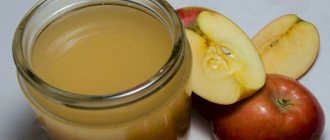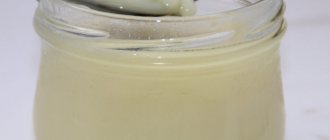Yogurt is an extremely popular fermented milk product that has many proven beneficial properties.
It is rich in important vitamins and minerals, helps maintain intestinal microflora, and improves the functioning of the immune system.
Yogurt without added dyes, sweeteners and preservatives, and not subject to heat, has maximum benefit and minimal harm. This is important to consider when choosing.
Below we have looked at 7 facts about the benefits of natural yogurt for the body.
Source of valuable minerals and vitamins
Yogurt is rich in almost all the nutritional components that are needed for the smooth functioning of the body of adults and the normal development of children.
1 serving of yogurt (about 245 g) contains half the daily value of calcium.
Irish studies demonstrate that adequate calcium intake can increase bone density and slow down the loss of valuable minerals. The effect is especially noticeable in older people, as well as in postmenopausal women.
The fermented milk product is rich in vitamins B2 and B12. According to scientists, cyanocobalamin (B12) is extremely important for the full development of the fetus during pregnancy. This biologically active substance also protects the gastric mucosa from damage caused by eating “junk” food.
Yogurt saturates the human body with phosphorus, magnesium and potassium. These minerals are extremely important for the course of all metabolic processes, maintaining blood pressure and bone mineral density.
According to Japanese scientific works, regular consumption of phosphorus has a beneficial effect on the health of bones, cardiovascular and urinary systems.
A special role is played by vitamin D, which is abundant in live yogurt cultures. According to research, vitamin D increases bone mineralization and reduces resorption activity.
Thus, yogurt contains all the valuable minerals and vitamins that are necessary for the body to function properly.
Nutritional value of natural whole milk yogurt
100 g of homemade whole milk yogurt contains (% of the recommended daily intake): ()
- Calorie content: 61 kcal (3%).
- Carbohydrates: 4.7 g (2%).
- Protein: 3.5 g (7%).
- Fat: 3.3 g (5%).
- Riboflavin: 0.1 mg (8%).
- Vitamin B12: 0.4 mcg (6%).
- Pantothenic acid: 0.4 mg (4%).
- Calcium: 121 mg (12%).
- Phosphorus: 95 mg (9%).
- Potassium: 155 mg (4%).
- Selenium: 2.2 mcg (3%).
- Cholesterol: 13 mg (4%).
- Omega-3 fatty acids: 27 mg.
- Omega-6 fatty acids: 65 mg.
Saturates the body with protein
1 cup of yogurt contains about 12 grams of protein. This is a fairly high figure when compared with other fermented milk products.
Proteins are not only a valuable building material for the whole body, but also have a beneficial effect on body weight. The combination of proteins with unsaturated fats present in yogurt, according to scientists, leads to a decrease in body weight.
According to foreign studies, compliance with the daily protein intake (from 1.2 to 1.6 g/kg) improves the functioning of the digestive system, reduces the incidence of cardiovascular diseases, and normalizes metabolism in general.
The most beneficial is Greek yogurt, which is characterized by its high protein content, viscosity and thickness due to the removal of whey. American experiments have found that consuming Greek yogurt reduces appetite, prevents hunger in the next few hours and, as a result, leads to a decrease in the incidence of metabolic syndrome.
Yogurt (especially Greek) is rich in proteins, which helps control appetite and promote weight loss.
Calorie content of the product
Calorie content is the energy value of a product. Calories are necessary for the human body in order to maintain normal vitality. After consuming any product, we feel cheerful and energetic for several hours ahead. Most nutritionists include yogurt on the menu because it is quite low in calories.
It is important to understand that the energy value of the product largely depends on the fat content of the milk that was used for its preparation. 100 grams of homemade yogurt contains 100-245 kcal. Regular store-bought yogurt contains 60-110 kcal. The more components and additives it contains, the higher its energy value.
Important! If you follow a healthy diet, it is recommended to use a product that is made from skim milk.
Improves the functioning of the digestive system
Certain types of yogurt that have not been subjected to heat treatment contain probiotics - live cultures of beneficial microorganisms.
Research shows that yogurt is rich in lacto- and bifidobacteria, which improve the absorption of lactose (according to official data, up to 25% of the world's population suffers from lactose intolerance). As a result, dyspeptic disorders (bloating, nausea, stool disorders) caused by lactase deficiency are eliminated.
American scientists have proven that probiotics contained in yogurt can relieve the symptoms of irritable bowel syndrome.
With the use of yoghurts with probiotics, there is a decrease in the level of intestinal discomfort caused by various reasons, a decrease in the severity of flatulence, and an increase in the frequency and volume of stool.
It is also important to note that the probiotic bacteria present in yogurt increase the population of beneficial microorganisms in the intestines, as a result, the growth of pathogenic and opportunistic flora is inhibited. This leads to a decrease in the incidence of infectious and inflammatory diseases of the digestive tract.
Yogurt is an important source of probiotics, which not only maintain microflora balance and reduce the incidence of dyspeptic disorders, but also participate in the processes of food digestion.
What is yogurt, its types
The benefits of homemade yogurt are not questioned. But there are also other varieties of the product that are no less valuable for the human body.
Knowing about the different types of product, you can understand what kind of yogurt is suitable for children and adults in this or that case.
Here are some yoghurts that are healthy and not so healthy:
- Natural. It does not contain any additives in the form of flavorings or thickeners. It contains only milk and sourdough.
- Fruit. It is distinguished by the content of tasty additives in the form of pieces of fruit, syrups and other similar products. Additional ingredients may be natural.
- Flavored. Such a product is full of various additives that do not have much value for the human body.
Yoghurts can also be living or non-living. In the first case, they contain a large number of lactobacilli, which are not supplemented with preservatives. Such treats can be stored for no more than a month. Others are able to maintain their validity for a year.
Strengthens immunity
Regular consumption of yogurt enriched with probiotics helps strengthen the overall immune system and reduce the incidence of infectious and inflammatory diseases by increasing the body's resistance to infections.
Australian scientists indicate that probiotics help reduce the severity of inflammation of the intestines and stomach against the background of viral, bacterial or autoimmune diseases. Yogurt also inhibits aseptic chronic inflammation in adipose tissue, which leads to weight loss and reliable prevention of metabolic syndrome.
It has been proven that the use of probiotics reduces the frequency, duration and severity of infectious pathologies of the upper respiratory system by approximately 5-10%.
Stimulation of the immune system is associated not only with the action of probiotics, but also with the presence of microelements such as magnesium, zinc and selenium in yogurt.
It has been proven that zinc stimulates the proliferation of lymphocytes, increases the production of cytokines, enzymes and thymic peptides, and slows down the apoptosis of lymphoid cells.
Magnesium and selenium are necessary for the balanced synthesis of key enzymes of energy metabolism, without which the correct functioning of the immune system is impossible.
Vitamin D also affects the immune system. One study found that people with low vitamin D levels were significantly more likely to have respiratory tract infections.
Yogurt, due to the content of probiotics, important microelements (zinc, magnesium and selenium) and vitamin D, has a complex positive effect on the immune system and reduces the risk of developing infectious pathologies (especially from the respiratory tract).
Milk
Milk is not just a valuable food product, milk is a real “wonderful miracle”, gifted by nature itself. Milk is considered a wonderful elixir of life, youth, and beauty among all nations. In India, a cow that gives milk is sacred and is protected by the state. Stores offer the buyer a very wide selection of milk from various manufacturers, in various packaging.
Natural milk has a shelf life of no more than 5 days; such milk was subjected to heat treatment at a low temperature and retained all its beneficial properties as much as possible (calorizer). It is recommended for daily consumption, although its price is higher. Pasteurized milk can be stored for up to several months; it is heated to 100 °C, at which some of the beneficial substances are destroyed, so it should not be consumed daily, but taken, for example, on the road.
Calorie content of milk
The calorie content of milk is 64 kcal per 100 grams of product.
Composition and beneficial properties of milk
The content of useful substances in milk is enormous: there are more than two hundred of them. A unique combination of proteins (there are several types of them in milk), fats, carbohydrates, beneficial amino acids, lactose, vitamins (D, A, PP, C, group B), minerals (calcium, phosphorus, potassium), enzymes, hormones, immune bodies endowed milk has very special properties (calorizator). It has antimicrobial, bactericidal, antiviral effects and is an excellent antioxidant.
Use of milk in cooking
Milk can be consumed as an independent drink, added to tea, coffee, cooked milk porridges and soups, made souffles and puddings, sweet sauces, added to baked goods.
Increases bone strength
Yogurt contains a lot of calcium, valuable amino acids, potassium, phosphorus and vitamin D. It is these substances that prevent bone loss and reduce the risk of developing osteoporosis and fractures.
British scientists recommend eating yogurt to prevent microelements from being washed out of the bones.
To maintain the health of the musculoskeletal system, scientists advise consuming fermented milk products every day.
The following daily norms are given as a guide:
- 3 servings of homemade (or natural store-bought) yogurt, 125 g each;
- 200 ml of milk, 125 g of yoghurt and 35 g of hard cheese.
It is necessary to add yogurt to your diet on a regular basis to maintain the mineral composition of bone tissue and prevent fractures.
Types of yogurt
The market offers a wide selection of different yoghurts, ranging from natural ones to products with all kinds of additives. Of course, the buyer himself chooses what he likes.
This product is divided into several groups:
- Drinkable and non-drinkable yoghurts. The first ones have a liquid consistency and are packaged in plastic bottles. This product is often chosen by business people who cannot eat normally. Yogurts in bottles are extremely convenient; you can take them with you and have a snack at any time.
- By fat content. There are low-fat and five percent yoghurts.
- Natural or with additives. The latter include products with fruits, berries and other ingredients, as well as yoghurts with the “BIO” prefix.
They all have different expiration dates, so when choosing a product it is extremely important to look at the date so that serious consequences do not arise in the future.
Supports Cardiovascular Health
For a long time it was believed that the high content of saturated fats in fermented milk products negatively affects the functioning of the heart, as it contributes to the formation of atherosclerotic plaques. However, recent scientific research has completely refuted this theory.
American scientists note that all dairy products (including cheese) reduce the risk of developing cardiovascular diseases.
Yogurt helps normalize the lipid profile, thereby preventing the development of atherosclerosis of large vessels and the manifestation of pathologies such as myocardial infarction or stroke.
It has been proven that fermented milk product increases the concentration of high-density lipoproteins and inhibits the formation of low-molecular-weight lipoproteins.
It is also noted that the inclusion of dairy products in the diet leads to a decrease in blood pressure (mainly systolic). The effect is similar to the effects of angiotensin-converting enzyme inhibitors. Thus, yogurt can be considered as an alternative to drug therapy in the early stages of the formation of hypertension.
Yogurt protects the vascular bed from the formation of cholesterol plaques and lowers blood pressure. The combination of these effects reduces the risk of severe cardiovascular diseases that can lead to death.
Homemade yogurt for beautiful skin and hair
The benefits of homemade yogurt are undeniable. You can prepare it yourself using a simple recipe. Afterwards, the product is easy to use in hair and skin care that needs additional nutrition and hydration.
Note! Yogurt has optimal acidity, which does not irritate even the most sensitive skin.
Yogurt mask for face and hair
The benefits of natural yogurt for facial skin are no secret. It has the following properties:
- Nourishes the skin.
- Moisturizes it.
- Provides the necessary vitamin and mineral complex.
- Renews old cells.
- Improves the production of collagen and elastane.
Additionally, the fermented milk product provides excellent cleansing. The recipe for a yogurt-based mask can be found in the table.
| Purpose | Cosmetic mask recipe |
| For mature skin | Suitable for any skin type, successfully fights inflammation and signs of aging. You should mix 1 tbsp. l. natural cocoa powder and 1 tbsp. l. honey with 1 tbsp. l. bio-yogurt. The mass is applied to the skin in a thick layer for 30 minutes. |
| For oily skin | You need to mix 0.5 tsp. fresh yeast and 1 tsp. yogurt. This mixture is applied to the entire face for 10 minutes, which must first be washed. |
| For split ends and weak hair | You need to mix 1 tbsp. l. castor oil with ½ cup natural yogurt. The mass is slightly heated in a water bath, after which it is distributed over the hair and root zone. Leave the mask under the cap for 15 minutes. |
| For oily hair | You need to mix 3 tbsp. l. yogurt, 2 tbsp. l. natural honey and 3 tbsp. l. cognac The resulting mass is rubbed into the scalp and distributed throughout the hair. The head is wrapped and left in this form for 30 minutes. |
Home care with yogurt should be regular, and then it will bring a positive effect that will be immediately noticeable.
Promotes weight loss
According to Canadian scientists, yogurt increases the circulation of special anorectic hormones (glucan-like peptide and peptide YY) in the blood. These substances suppress the feeling of hunger. As a result, a person consumes less food, and his weight gradually decreases.
Frequent consumption of yogurt has been shown to be associated with lower body weight and waist circumference. In addition, the percentage of fat mass is significantly lower among lovers of this product.
Yogurt is extremely convenient because it can be eaten both in the morning on an empty stomach, and late in the evening or even at night.
Thus, yogurt promotes weight loss and can be used to prevent and combat obesity.
What is the difference between yogurt and kefir
The benefits of kefir were no secret, which you can read about in this article . Its direct competitor is natural yogurt, which has found a lot of admirers among children and adults.
Note! To maintain health, you need to drink at least one glass of high-quality fermented milk product per day.
Both products are very similar in composition. But in the first case, manufacturers use kefir grains, and in the second, yogurt starter. In fact, these products have a large number of useful substances that regulate the functioning of the human body.
Possible harm and contraindications
In some cases, using yogurt can be harmful. The following contraindications are identified:
- Lactose intolerance is a condition in which the body does not produce enough lactase, the enzyme that breaks down lactose. As a result, a lot of dyspeptic disorders develop: from flatulence and cramping abdominal pain to stool disorders. However, in cases of mild lactase deficiency, bacterial agents in yogurt can independently ensure the absorption of lactose.
- Allergy. The most common is an increased reaction of the body towards the protein casein. Manifestations of allergies can be anything from urticaria to anaphylactic shock.
- Sugar intolerance. Nowadays, deviations from the glycemic background (diabetes mellitus, impaired glucose tolerance, etc.) have become widespread. Such people should choose yoghurts that do not contain sugar. Otherwise, the course of the disease worsens and complications appear.
It is important to give preference only to natural types of yogurt that do not contain preservatives, flavor enhancers, sweeteners, dyes, etc.
Thus, consuming yogurt can cause harm to the body in the presence of allergic reactions and lactose intolerance. People who suffer from diabetes should pay attention to the sugar content of the product.
Features of taking yogurt for breakfast and at night
Nutritionists and doctors do not recommend eating yogurt in the morning on an empty stomach. This will be an extra burden on the body. During this period, all systems are capable of starting work independently. It is best to drink the drink after a hearty breakfast, then he will be able to:
- ensure complete digestion;
- help improve food absorption;
- protect the body from dangerous pathologies;
- unload the pancreas;
- charge the body with energy.
It is better for people with problems such as diarrhea, flatulence, and diabetes to avoid eating yogurt.
A fermented milk drink will be an excellent snack in the evening. It will also reduce heaviness in the stomach, calm the nervous system, and prevent insomnia. It is worth remembering that you need to drink yogurt with a fat content of no more than 2.5% 2-3 hours before bedtime in limited quantities.
How to choose?
Preference should be given only to natural yoghurts without the addition of foreign substances and preferably without sugar, berries, fruits and other sweet fillers. The described components may adversely affect the state of bifidobacteria and lactobacilli flora and narrow the range of beneficial effects.
Yogurt should not be heat treated. Exposure to high temperatures kills all beneficial microorganisms.
Of the store-bought options, thermostat yoghurts are the most useful due to their high quality. Homemade yogurt with dry sourdough is also great
Additionally, it is important to adhere to the following guidelines before purchasing:
- Absence of any chemical additives. We have already written about this above. It’s better to buy regular yogurt and add fruits, berries, and honey to it yourself.
- Calorie content from 80 to 250 kilocalories per 100 g of product. Low-fat yogurts are useless for the human body, and high-fat foods can disrupt the functioning of the cardiovascular system and lead to obesity.
- Presence of live bacterial cultures. Before purchasing, you should make sure that the product is enriched with beneficial flora. Typically, such information is always displayed on the label.
- Short shelf life. The shelf life of “live” fermented milk products cannot exceed 2-3 weeks. The duration of storage is determined by the quality of the packaging and usually ranges from 3 to 21 days.
We discussed 7 more tips on how to choose yogurt in a separate article.
Drinking yoghurts – good or bad?
It is difficult to imagine a person who would refuse to improve his health not through daily training and conditioning, not through expensive trips to resorts, but with the help of a single jar of a miracle drug. This method is simpler, cheaper and more enjoyable. This is exactly what manufacturers of drinking yoghurt use in their advertising, promising to improve the physical condition of the body, strengthen the immune system and make the figure almost ideal in just a few weeks. To make it more impressive, the jars bear numerous stamps: “Approved by WHO”, “Recommended by the World Society...” (cardiologists, nutritionists, immunologists, etc.), images of flasks, test tubes and microscopes enhance the impression made on the ordinary buyer.
What is the difference between miracle drinking yoghurts and ordinary cottage cheese or kefir, to which it is easy to add fruits or berries to taste? As the label says, they contain special groups of lacto- and bifidobacteria, which are supposedly necessary for the normal functioning of the immune system. However, if you approach this issue from a purely medical point of view, then such a statement is simply absurd: after all, immunity is a complex name for an entire system consisting of more than 500 processes, at least half of which are still an unsolved mystery for modern science. Therefore, it is impossible to imagine a drug that would truly effectively stimulate this as yet unexplored mechanism. The bifidobacteria contained in drinking yoghurts are really necessary for the body during dysbiosis - due to an unhealthy diet or after taking antibiotics. In a healthy body, they already exist in the required proportions as an integral part of the intestinal flora, and for the treatment of dysbiosis there are medications that are much more effective and safe for the body.
After reading the label, any sane person will wonder: what kind of yogurt is this that contains pieces or juice of fruit and can be stored for more than a month? (But many drinking yoghurts that “boost immunity” have a shelf life of more than six months!) Of course, without a powerful preservative, such a product will turn sour literally within 24 hours, not to mention the fact that the bacteria contained there will begin to actively multiply and their number will exceed all permissible limits. So, drinking yoghurts contain the most modern preservative E1442, which, according to many medical practitioners, can cause pancreatic necrosis - a rather dangerous disease of the pancreas. Essentially, this substance (hydroxypropyl distarch phosphate) is a huge molecule extracted from corn starch. In addition to the fact that such starch, as a rule, is made from genetically modified corn, it slowly affects the pancreas, impairing its function and contributing to the development of serious diseases.
To gain greater popularity among consumers, drinking yogurt must not only have a pleasant taste, but also be much more attractive than the usual dairy products - kefir, cottage cheese, yogurt. That is why such products contain large amounts of sugar, which, when consumed in increased quantities, can lead to edema and obesity, as well as diseases of the teeth and oral cavity. Each new type of yogurt is determined not by the content of fruits or juices, but by the flavoring, which is not only not healthy, but can also be harmful to the body; in addition, many “berry” drinks contain sodium citrate (E331), which increases the acidity of the mouth and stomach .
But despite all this, yoghurts contain beneficial strains of bacteria! However, if you think about it, lactobacilli are contained in any lactic acid product: kefir or fermented baked milk, without them these drinks simply could not form! But in addition to lactobacilli, kefir contains no less useful fungi, and in total there are more than two dozen microorganisms necessary for human health. However, kefir is stored for no more than three days, otherwise further unwanted fermentation begins in it, and many organisms simply die. The same thing happens in drinking yoghurts: lactobacilli and bifidobacteria disappear after a few weeks, leaving only flavors and stabilizers identical to natural ones for human health.
For a sane buyer there can be no doubt: the benefits of drinking yoghurt are just a marketing ploy by manufacturers who are not at all interested in the health and normal nutrition of their customers. Most often, ordinary people, having seen numerous inscriptions “Approved by the Union of Specialists ...”, forget about any doubts regarding this product, but it is worth reading the label carefully in order to raise a big question regarding the benefits of the contents of such a “miracle jar”.
Author: Maria Lev (especially for) Copying this article in whole or in part is prohibited.
Beneficial features
It is not surprising that the rich composition of yogurt helps our body:
- improve the functioning of the gastrointestinal tract;
- remove toxins and waste;
- do not allow harmful bacteria to multiply in the stomach;
- increase immunity;
- balance the intestinal microflora.
Regular consumption of lactic acid product reduces cholesterol, improves brain activity, increases concentration and visual perception.
Don't limit yourself to just yogurt, because milk is used to make such healthy treats as kefir, fermented baked milk and yogurt.
Everything you need for the whole day
Although yogurt is indeed rich in calcium
, it also contains many other nutrients.
By eating yogurt, you get 28% more vitamin D, 24% more calcium, and 13% more potassium in your diet.
In addition, yogurt is rich in vitamins and minerals such as B vitamins (especially B12 and riboflavin), phosphorus and magnesium
. It is also high in protein, which is good for maintaining your metabolism. One serving of Greek yogurt (about 200 grams) contains an average of 22 grams of protein.
You will feel more satisfied
If you are one of those who like to snack frequently
between breakfast and lunch or between lunch and dinner, you may want to eat yogurt daily.
You may feel happier
and happy choosing Greek yogurt as a snack. Greek yogurt is high in protein, and protein helps you feel full for a longer period of time. So, it can help you fight the constant urge to snack.
For even more satisfaction
, choose a high-fiber yogurt or you can add it to the yogurt yourself. Protein and fiber are the perfect duo for a satisfying snack. If you're not sure what fiber to add, try high-fiber dry cereal or chia seeds.
How and from what to make healthy yogurt
Lactose intolerance is not a scourge of the modern generation, but a completely common property of the human body [9]. After 5 years, we stop absorbing lactose, and its uninterrupted intake into the body provokes stool disorders, abdominal pain, chronic pathologies and acne. To avoid these symptoms and feel completely healthy, replace cow's milk with coconut milk. It is much healthier, more natural and nutritious.
You can use cream instead of coconut milk. If coconut milk doesn't suit your taste or budget, then consider almond, hemp, soy, rice, hazelnut, oat and goat milk. For example, goat milk yogurts contain about 8 grams of protein and 30% of your daily calcium (Ca) requirement. This product is perfect as one of the components of breakfast or a snack to stay in good shape throughout the day.
Raw Coconut Yogurt Recipe (1)
We will need:
- coconut milk - 1 can;
- probiotic capsule – 1 pc. (use as desired, can be omitted from the recipe).
Preparation
Leave the can of coconut milk in the refrigerator overnight. In the morning, you will see that a white dense layer has separated from the transparent coconut liquid, which looks like hardened cream. Remove this cream with a spoon and place in a convenient container. You can simply drink coconut water or use it in other recipes. The resulting cream is natural and healthy yogurt. You can add probiotics, fruits and other healthy ingredients to your liking. Mix the mixture well and start eating. The delicate coconut taste and aroma will not leave anyone indifferent. Given the natural sweetness of coconut, there is no need to add sweeteners or flavor enhancers to yogurt, which is a significant advantage over store-bought cow's milk yogurts.
Raw Coconut Yogurt Recipe (2)
We will need:
- coconut milk - 1 can;
- agar-agar – 1 teaspoon;
- probiotic capsule – 1 pc (used as desired, can be excluded from the recipe).
Preparation
Pour a whole can of coconut milk into a deep saucepan, then add agar agar. Do not stir the mixture, otherwise you will not get the desired yogurt consistency. Place the pan over medium heat and wait until it comes to a boil. As soon as you see that the milk is boiling and the crumbly agar-agar is melting, carefully stir the contents of the pan and reduce the heat to the lowest possible setting. Stir the mixture constantly for 5 minutes. Then remove the pan from the stove and let cool at room temperature.
Once the milk is cold, add probiotics (optional), fruits, seeds and other ingredients. Pour the contents into a jar and place in the refrigerator. After some time, the milk will begin to harden and the structure will become similar to soft jelly. Place coconut jelly in a blender, beat until smooth, taste and add the missing ingredients.
Coconut milk-based yogurt should be stored in the refrigerator for no more than 14 days.
When is the best time to eat it?
A natural dairy product will be beneficial at any time of the day, and you can eat it either separately from other products or together with them. But at different times the beneficial properties manifest themselves differently.
Yogurt in the morning
The benefit of yogurt on an empty stomach is that it quickly starts the digestive processes in the body. It’s even better to eat the treat closer to noon, as a lunch, then it will satisfy a slight hunger without harming the stomach.
Yogurt at night
It is also allowed to use the product at night - it will not harm your figure. The benefit of yogurt before bed will be that it will speed up the process of digestion of food.











